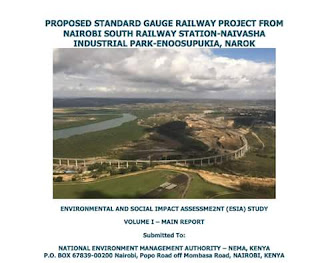Wetlands for a Sustainable Urban Future
Lake Ol Bolosat is the only natural lake that can be found in the central part of Kenya. It is home to various types of fish like the catfish, hippos and a number of migratory bird species which attract numerous tourists. It is also the source of River Ewaso Nyiro which is important for the livelihoods of many people, livestock and wildlife that are found downstream.
Despite all these, the existence of this lake is threatened by activities such as pollution, quarrying, overgrazing, encroachment, increased population growth and various other human activities. For example, poor farming methods have caused siltation of the lake which has resulted in reduced water level s in the lake. It is believed that if we don’t act now, the lake will no longer be in existence in the next 15 years.
It is in light of this that this year’s World Wetlands Day celebrations in Kenya will be commemorated at this endangered lake in Nyandarua County. This will be held on February 2nd 2018. The theme of this year’s celebration is ‘’Wetlands for a Sustainable Urban Future’’ while the slogan will be ‘’Healthy Wetlands, Clean Towns’’. This aims at raising awareness about the benefits of urban wetlands towards creating more sustainable future urban cities. The celebrations this year aim at informing us the following;
• Urban wetlands are important in water supply, waste treatment, green space etc.
• The need to integrate urban wetlands into a city’s future sustainable development plans.
• The need for cities to adopt policies and actions that will promote the conservation of urban wetlands.
It is in light of this that this year’s World Wetlands Day celebrations in Kenya will be commemorated at this endangered lake in Nyandarua County. This will be held on February 2nd 2018. The theme of this year’s celebration is ‘’Wetlands for a Sustainable Urban Future’’ while the slogan will be ‘’Healthy Wetlands, Clean Towns’’. This aims at raising awareness about the benefits of urban wetlands towards creating more sustainable future urban cities. The celebrations this year aim at informing us the following;
• Urban wetlands are important in water supply, waste treatment, green space etc.
• The need to integrate urban wetlands into a city’s future sustainable development plans.
• The need for cities to adopt policies and actions that will promote the conservation of urban wetlands.
The last 5 year management plan that existed for Lake Ol Bolosat was for 2008 – 2013 and since then none has been developed to pick from the previous one which has resulted in the absence of a clear direction in respect to matters of conservation of the lake and surrounding riparian zones. Some of the benefits of urban wetlands conservation include;
• Reduce flooding
• Replenish drinking water
• Filter wastes and improve water quality
• Improve urban air quality
• Promote human well being
• Enable people to earn a living
• Reduce flooding
• Replenish drinking water
• Filter wastes and improve water quality
• Improve urban air quality
• Promote human well being
• Enable people to earn a living



Comments
Post a Comment